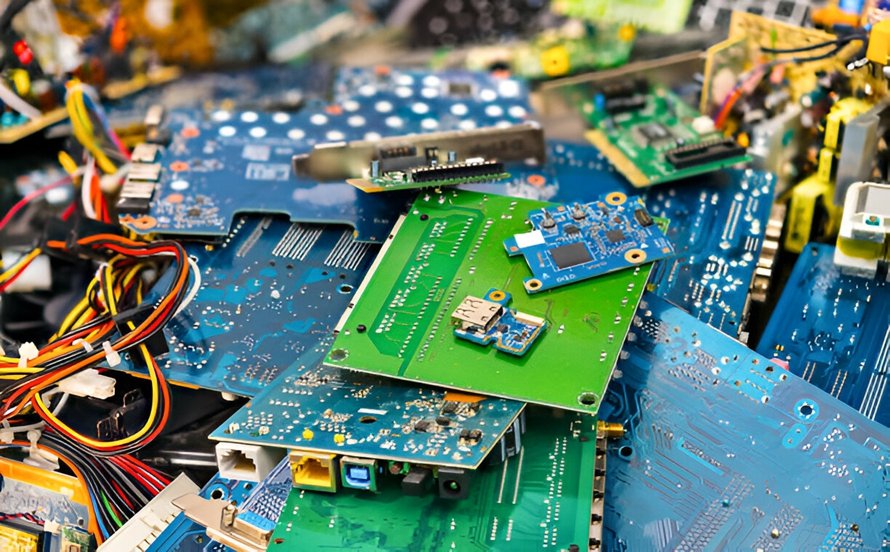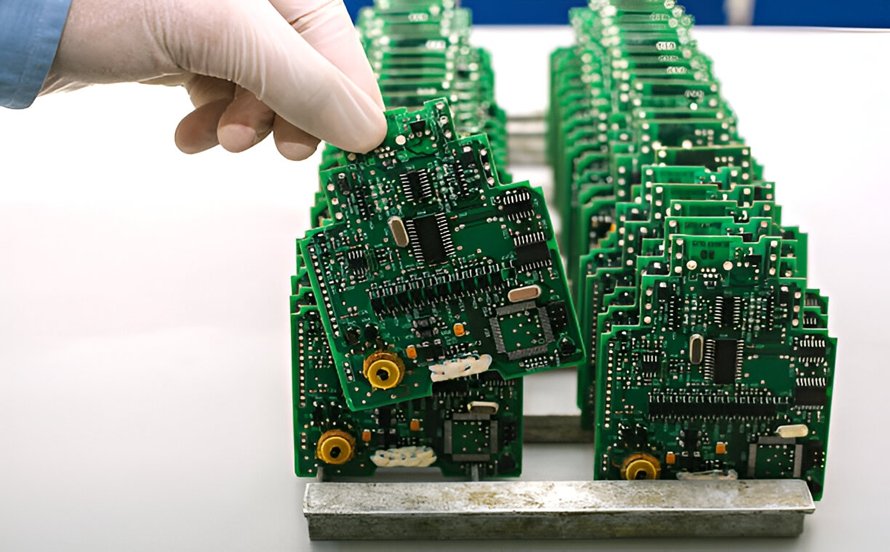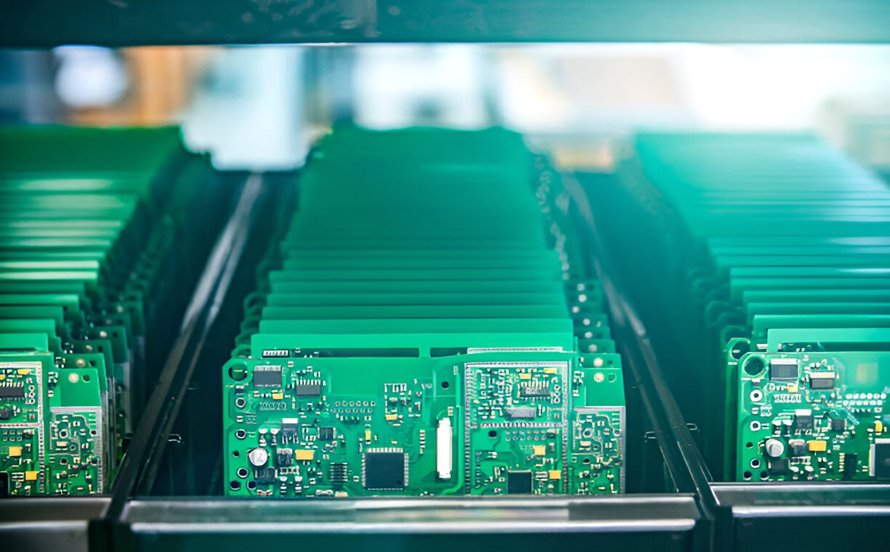The utilization of industrial electronics has expanded significantly in today’s technological landscape. A key element in industrial electronics is the industrial PCB, which plays a critical role in ensuring proper functionality.
Get a free quote now!
What are Industrial PCBs?

Get a free quote now!
Industrial PCBs are circuit boards specifically designed for industrial electronics applications rather than consumer electronics. These boards are engineered to withstand the demanding conditions of industrial environments, such as extreme temperatures, chemical exposure, mechanical stress, and humidity. Industrial PCBs deliver reliable and efficient performance in these challenging settings.
These PCBs are vital components in complex machinery and systems, contributing to industries like automotive, telecommunications, and other sectors with extreme operational conditions. A malfunctioning PCB in an industrial setting can lead to significant production delays, financial losses, and safety hazards. In contrast, a well-designed industrial PCB enhances reliability and ensures safe production operations.
Common Materials Used in Industrial Circuit Boards
Various materials are used in industrial PCBs to meet the specific needs of each application. Some commonly used materials include:
- FR4: A fiberglass-reinforced epoxy laminate, this is one of the most widely used substrate materials in industrial PCBs. It is favored for its cost-effectiveness, insulation properties, and mechanical strength. Variants like high TG, high-speed, and halogen-free FR4 are also used.
- Polyimide: Ideal for flexible PCBs, polyimide offers excellent thermal stability and flexibility, along with superior electrical properties.
- Metal-Core: This material is used in PCBs requiring high thermal conductivity and effective heat dissipation.
Manufacturing Process of Industrial PCB Boards
Industrial PCBs are manufactured using a stringent process to ensure reliability and precision. The steps include:
PCB designs are developed using specialized software to meet operational and performance requirements. Prototypes are tested during R&D to validate the design before full-scale production.
The finalized design is transferred onto the substrate through a photolithographic process, which creates the desired PCB layout.
Chemicals are used to etch away unwanted copper, leaving only the required conductive paths.

Precise drilling is performed to create vias for component placement.
Copper plating is applied to the drilled holes and surface pads to establish conductive pathways.
A solder mask is applied to protect conductive paths and prevent solder bridges during assembly.
Rigorous testing methods, including X-ray inspection, electrical testing, and Automated Optical Inspection (AOI), are used to ensure that the PCBs meet industrial standards.
Applications of Industrial Printed Circuit Boards
Industrial PCBs play a crucial role in automation systems and CNC machines, supporting high-power tasks like cutting, drilling, and milling. They are also integrated into robotic systems to enhance production speed and efficiency.
In the automotive industry, industrial PCBs manage engine performance and fuel efficiency in engine control units (ECUs). They are also found in infotainment systems, ABS, and cruise control systems, improving overall safety and performance.
Industrial control systems such as PLCs, HMIs, and DCSs rely on industrial PCBs to perform in harsh environments, making them essential for large-scale production.
Industrial PCBs are employed in power generation systems to control turbines and generators and are also used in renewable energy applications, such as solar panels and wind turbines.
Industrial PCBs are used in telecommunication devices, including switching systems, base stations, and signal transmission systems, enabling efficient communication.

Design Considerations for Industrial PCBs
Thermal Management:
Heat sinks, thermal vias, and appropriate layouts are used to manage heat dissipation, with metal-core substrates providing enhanced thermal properties.
Signal Integrity:
Proper trace width, spacing, and routing are essential to minimize signal loss and ensure impedance control, reducing noise and electromagnetic interference (EMI).
Power Distribution:
Adequate power and ground planes, along with decoupling capacitors, are used to maintain stable voltage levels and eliminate power supply noise.
Environmental Factors:
The unwanted copper iMoisture protection, such as epoxy coatings, is crucial to protect PCBs from environmental conditions. Components must also be selected for high-temperature tolerance.s removed through chemical processes, leaving only the desired circuit pathways.
Electromagnetic Interference (EMI):
Shielding techniques, filters, and effective grounding approaches are implemented to minimize EMI.
Mechanical Design:
The mechanical strength of industrial PCBs is enhanced by ensuring proper board thickness and durability to withstand shocks and vibrations.
Meeting Standards:
Industrial PCBs must comply with IPC, UL, EMC, and RoHS standards to ensure safety, reliability, and proper insulation.
ESPCBA: A Professional Industrial PCB Manufacturer
Industrial PCBs are required to perform in extreme environments, making their manufacturing process both complex and precise. When selecting a reliable partner, professionalism is key. ESPCBA, a top PCB manufacturer based in China, is a trusted choice for both domestic and international clients. Our benefits include:
16+ Years of Experience
Non-destructive Quality Assurance
Orders as Low as One Piece
Compliance with IPC-A-600 Class 2, 3, and 3A Standards
100% Customer Satisfaction
Comprehensive PCB Fabrication and Assembly Services
Connect with us
Get an Instant Online Quote Today
Looking for reliable SMD assembly services? At ESPCBA, we’re your trusted partner for PCB fabrication, component sourcing, and electronic manufacturing. With over 16 years of experience, we’ve provided high-quality PCBs at competitive prices to over 1,000 customers worldwide. Our company is ISO9001:2015 certified and UL listed, and every product we deliver is 100% E-tested and inspected using AOI and X-ray to meet the highest standards. Get an instant quote from our sales team today, and let us handle the rest for you.